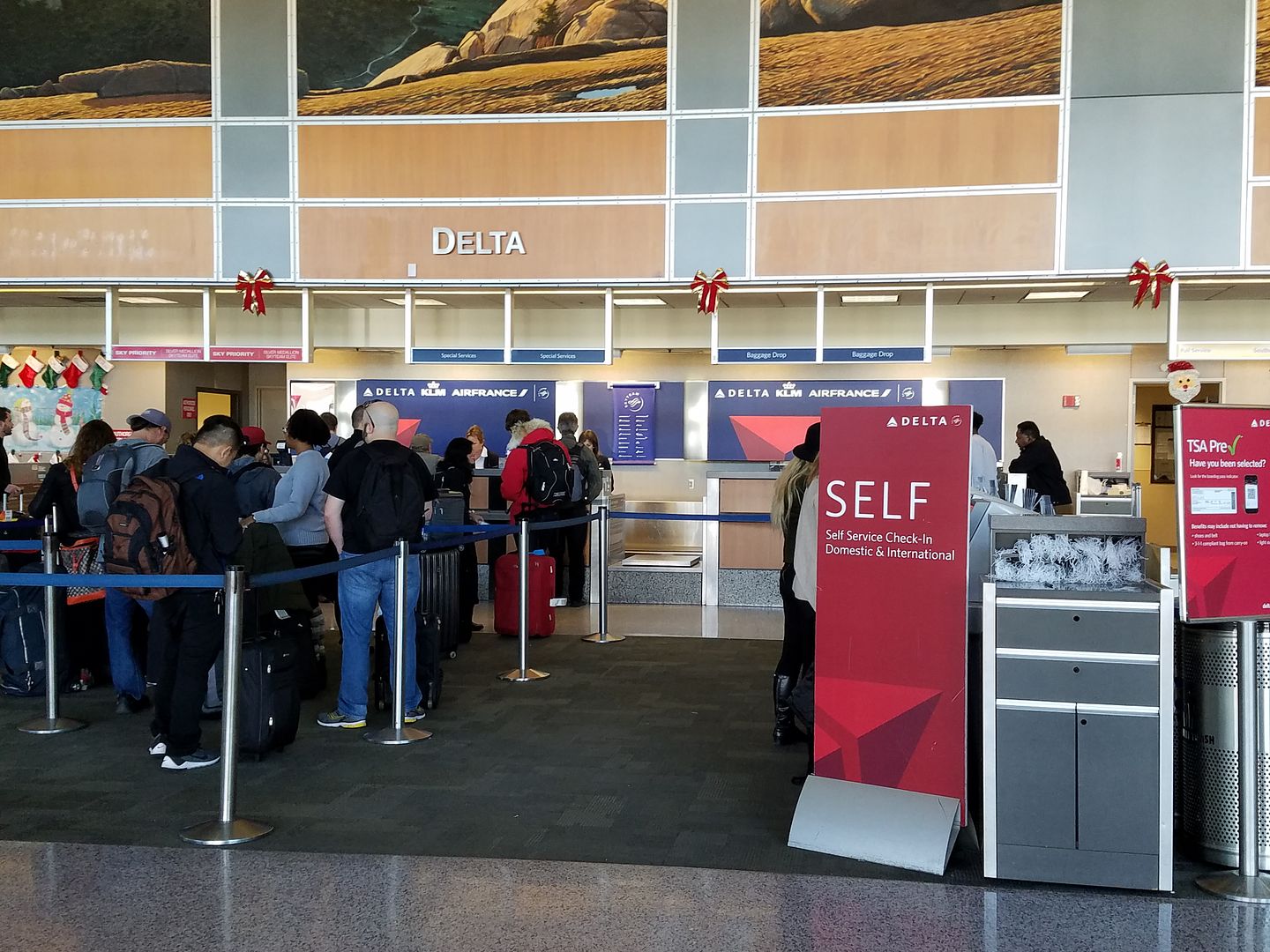Back in July Delta began requiring SkyMiles members to go to the airport to purchase award tickets within 72 hours of travel when originating in China, Russia, and any country in Africa.
That doesn’t just trip up Russians, Chinese, and residents of Africa. Delta offers one-way awards, and often the best award availability is at the last minute.
In 2011 Delta made awards non-changeable and non-refundable within 72 hours of travel so instead of changing tickets at the last minute many SkyMiles members wait until close to travel to book their return trips to the United States.

And now Delta has expanded this restriction adding Indonesia, Singapore, Vietnam, and Brazil. Their terms and conditions say that in-person ticketing is required for travel within 72 hours from:
- China
- Russia
- Any of the 54 African countries served by Delta and its partner airlines
- Indonesia
- Singapore
- Vietnam
- Brazil
Award Tickets purchased for travel within or originating in China, Russia, Indonesia, Singapore, Vietnam, Brazil and any country in Africa require a 72-hour advance purchase. Members desiring travel within or originating in these markets within 72 hours must go to the airport to purchase their ticket, including reissues. No Exceptions. The advanced purchase applies to all Award bookings in the affected markets.

Frequent flyer programs face significant fraud. A hacker takes control of an account, redeems all the points for travel right away before anyone notices (for future travel the passenger might get caught before boarding their flight). Compromise an account, travel right away, when it’s too late for the airline to do much to recoup the loss. And frequent flyer programs generally make their members whole when their accounts are drained.
That’s why we get increased account security. Hilton makes you clear captcha to log into your account, this reduces the ability for bots to brute force attack accounts and determine their passwords. United has a series of (often silly) security questions.
Much of the fraud originates in China and Africa, and perhaps even Russia. Adding Singapore to this list is very surprising.
Loyalty programs need to address fraud without inconveniencing their members. When Hilton introduced points pooling their leadership said that detecting fraud was the responsibility of the program, not something with which to inconvenience members.
Fighting fraud is important for the sustainability of a program. But SkyMiles has hardly been sustained as it is, and members need to be on notice that this program is really not good for last minute travel originating in large swaths of the world.


One has to ask why anyone would want to hack a Skymiles account considering how worthless Skypesos are.
Fighting fraud is only good for the sustainability of a program that is not a fraud.
This is really a reflection of poor IT/infosec talent at Delta.
Singapore surprises me. They are far ahead of the US, technologically speaking.
I’m just as surprised about Singapore as well, though perhaps the ease of ASEAN travel may be the cause of this.
One would think a common sense exception to this policy would be if the account holder is flying on the reservation.
Gary, thanks for the heads up. News like this is why this blog is invaluable. Despite the fraud issues, this still feels like a downgrade.
So if I’m in any of the African countries served only by its partner airlines, can the partner airline desk at the airport get the ticket issued? If I need to get to a Delta ticket counter from, let’s say, Madagascar , that could be quite a schlep.
Delta is trying to win the race to the bottom when it comes to their awards programs.
This is just a stealth devaluation in the name of security. The bean counters probably calculated the expected savings from reduced partner bookings as a result of this policy and implemented it as a business decision.
This is overly restrictive.
It should not apply to travel booked in the name of the account holder. (Does Delta really think somebody will forge a passport with my name on it in order to travel on an award ticket?)
But the big question is why it should apply only to award tickets and not to all tickets? Why can somebody book an business class ticket online (or by phone) for $5000, but an award ticket from Moscow to Prague in economy (which costs $300) requires an in-person visit? Why cant the same anti-fraud measures which cover revenue tickets be used for award tickets instead of severely inconveniencing people?